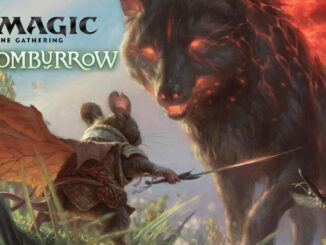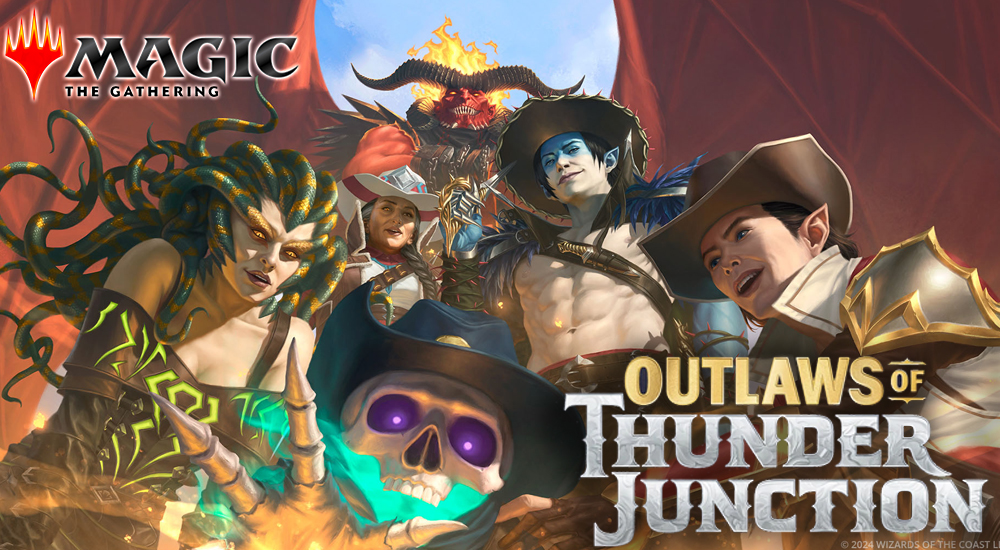Murder mystery games & combat card games team up in Magic: The Gathering’s new set
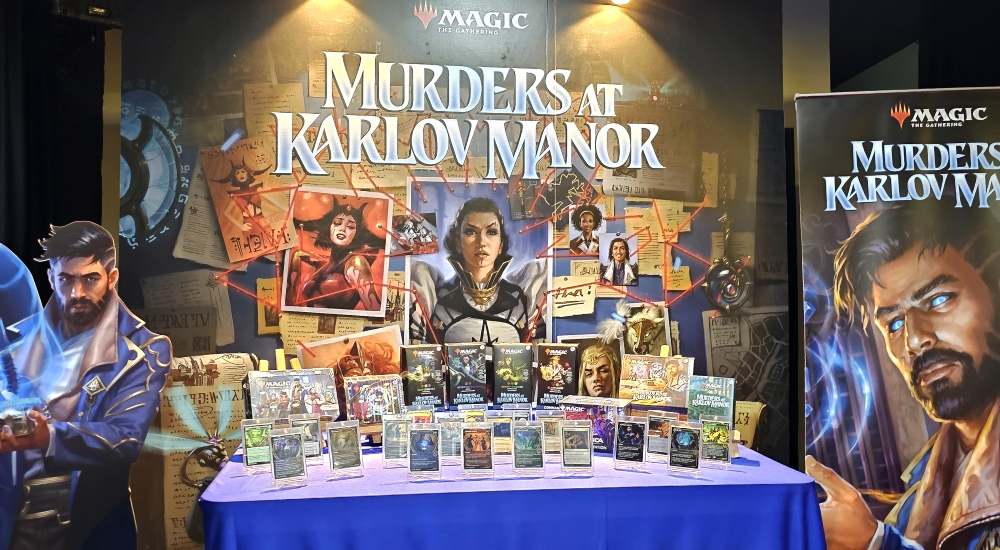
Werewolves. Cluedo. Mysterium. Murder mystery games are popular tabletop games, made even popular today with the modern rise of the true crime genre. There’s the thrill of murder, dark secrets, deception, social deduction, and of course the cool-guy detective aesthetic. However, most of these games mostly focus on social deduction and deception as a mechanic, so what if you’re itching for more? What if you actually wanna punch your way through the mystery?
With the release of Murders at Karlov Manor, Magic: The Gathering’s (MTG) new set, murder mystery game fans can now combine their beloved social deduction mechanics with a turn-based magical combat mechanics!
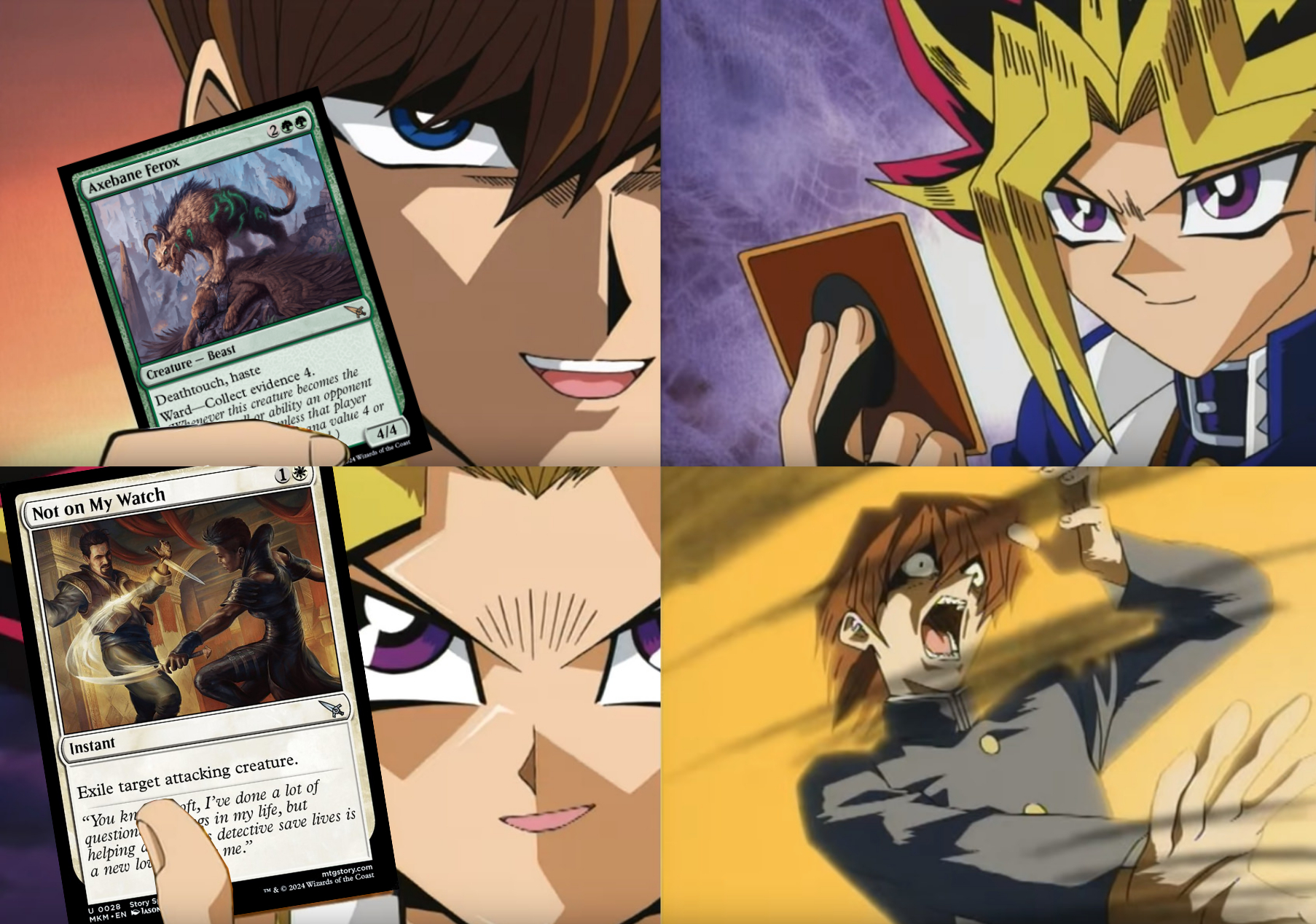
A case briefing of the Murders at Karlov Manor
If you’re even a little involved in the tabletop gaming scene, you might have heard of MTG: a trading card game with turn-based combat mechanics, a fantasy aesthetic and lore. It is the trading card game, with 30 years of continued relevancy and a huge international fan base. Their cards are so in demand that there’s a whole mini economy around them.
Murders at Karlov Manor is MTG’s newest set that is currently on prerelease and will be officially launched by the 9th of February. Each MTG set comes with a theme, like dinosaurs, samurais and mafias, so this set follows the theme of detectives and murder mysteries, but of course in the fantasy setting of MTG.
Ravnica is being plagued with unsolved murders — battle either as detectives and citizens looking to solve the case, or as murderers and shady figures keeping the city in their dark clutches.
The cards involve your usual fantastical suspects of goblins and vampires, but with the murder mystery characters of detectives and assassins. The cards are also based on murder mystery troupes, like ‘Meddling Youths’, ‘Innocent Bystander’, and ‘Deduce’.
There’s also a few new mechanics on certain cards in this set that tie in with murder mystery games:
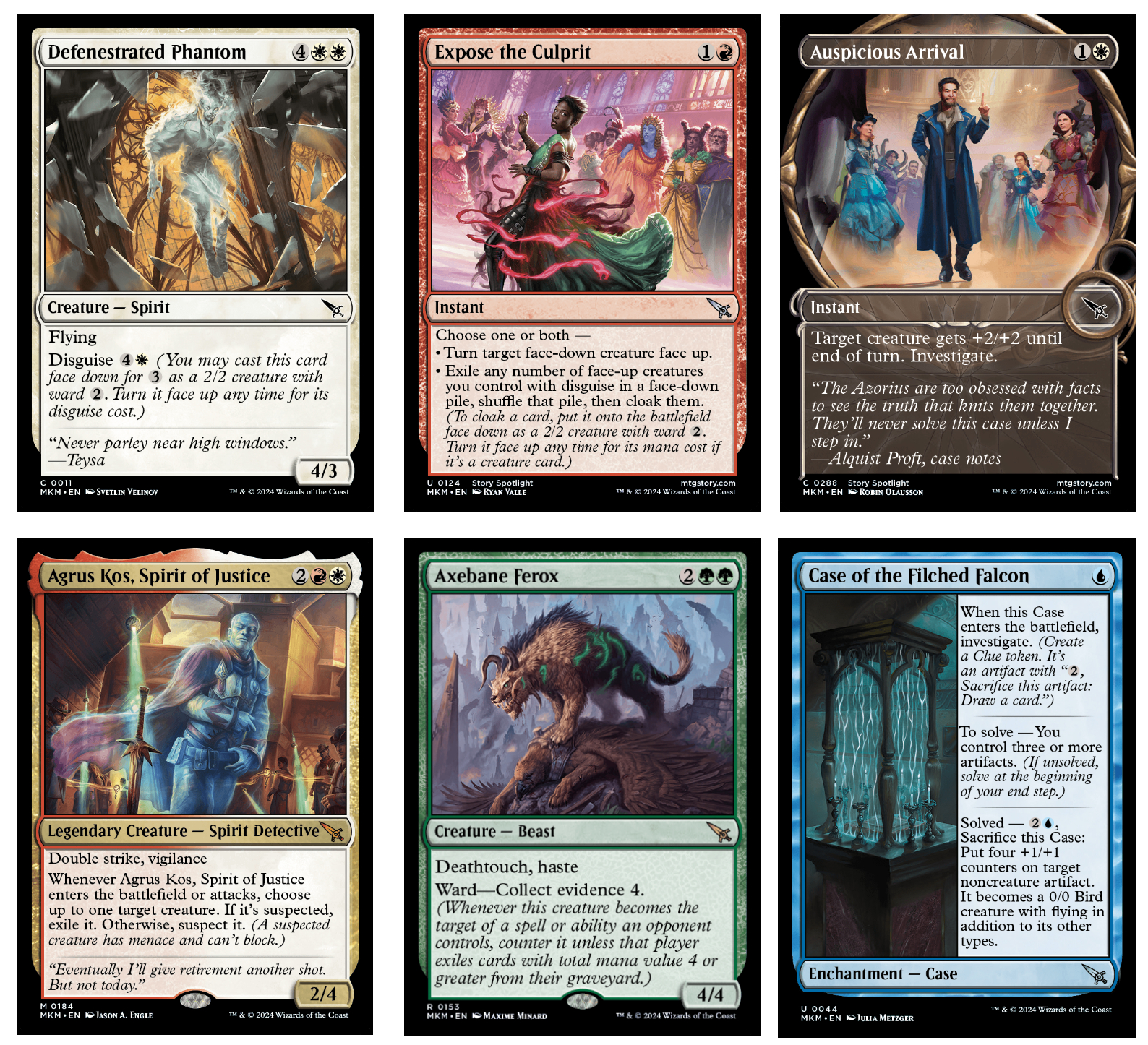
Disguise is an ability available on some cards that allow you to cast them face down, so it presents itself as a 2/2 creature and their true identity is hidden from your opponents. You can pay a cost to turn it face up, where the card’s true nature and abilities can be revealed and used.
This ability allows you to use deception to your advantage. Your opponent may think it’s merely a weak creature they can kill in one swipe, or maybe it’s secretly a powerful being they should be wary of. They could either waste their resources on your red herring or fall into your trap of killing their attacking creature.
Cloak meanwhile, acts like Disguise, but is basically an action you can use to Disguise cards that don’t have Disguise.
Investigate allows you to create a Clue token that you can sacrifice whenever to draw a card. This one’s for the more tamak people who wanna be very resourceful with cards.
Suspect is an act where you can inflict the status effect of Suspected on creatures. Suspected creatures have the status effect Menace (their attacks can only be blocked by more than one creature) and cannot block attacks themselves. It’s a double edged sword, a trade off for more power.
Collect evidence is an ability that acts like a trade off: In return for exiling cards from your graveyard in accordance to the mana cost needed to collect evidence, you earn whatever the collecting evidence lets you earn. It depends on the card. Hey, get it? You collect evidence by going to the graveyard?
Cases are like transformative cards. They start out with an ability, but if you do the things required “to solve” the case, they turn “solved” and become a different card with different abilities.
This is all just a basic rundown of the mechanics that may entice existing murder mystery game fans, but there’s a more in-depth article on the mechanics.
A case analysis of the game
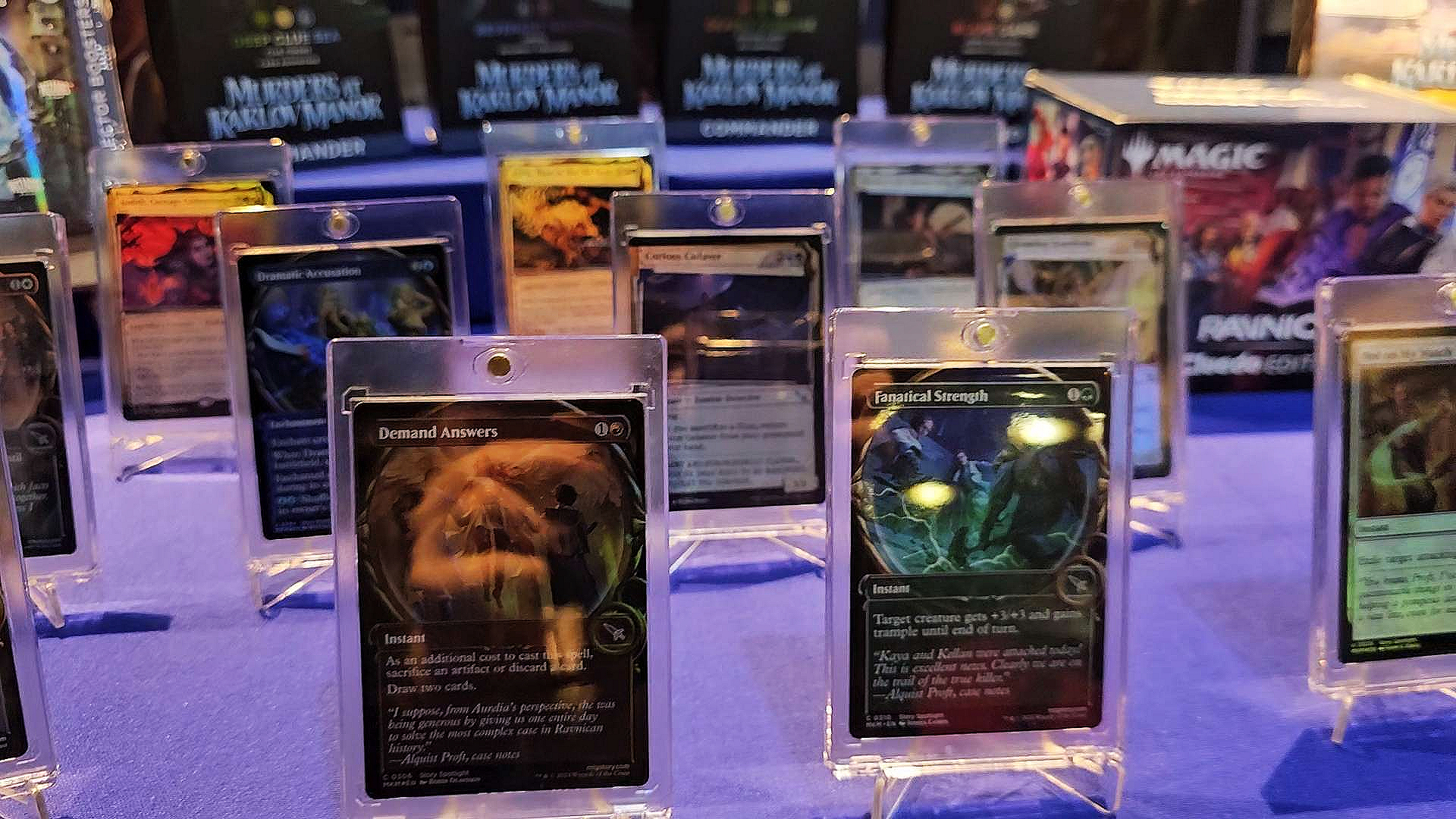
So, we had a chance to do a quick play with the cards with others at the prerelease event. What made this different from regular MTG plays was the mechanic of suspicion. While combat games like this usually do involve some form of suspicion, of wondering what your opponent’s next move will be and planting red herrings, Murders at Karlov Manor amps it up and pushes it as a mechanic you should use more. The detective and crime flavour of the cards also added some fun, since it breaks up the stuffiness of traditional high fantasy and adds additional character to it.
We were teamed up with people that were definitely way out of our league and they absolutely outsmarted us before we could to them. Still, the players were open to guiding us and teaching us the ins and outs, as well as strategies we could use.
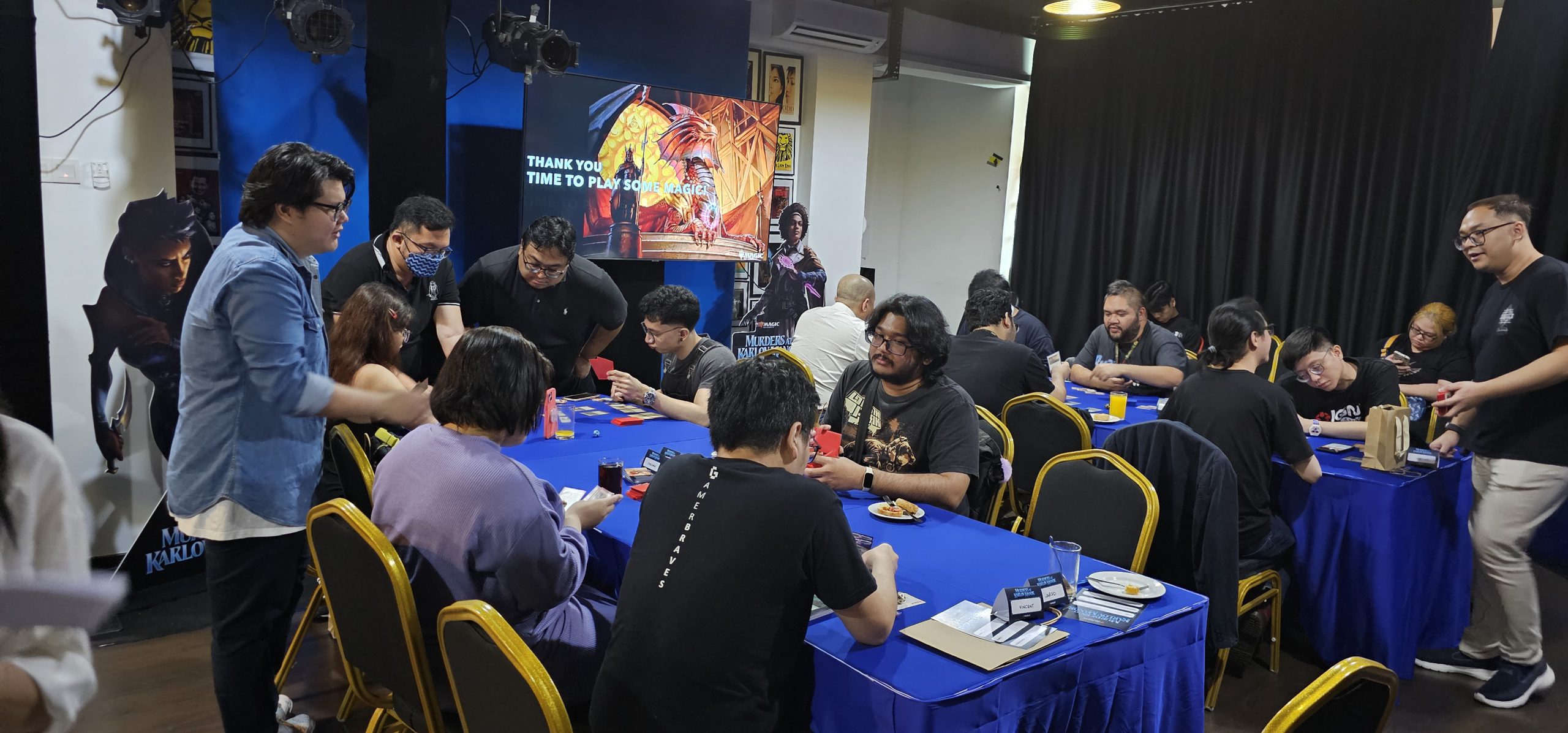
Speaking from our personal experience in the local MTG community, the fan base is small but tight-knit, and they’re always looking for new players to teach so they can join in on the game. So if you’re a murder mystery game fan who’s looking to expand your horizons but still wanna a hint of familiarity, you can give this set a try and play with people by looking up game stores around you that do Commander night, a weekly session where people play MTG in the Commander format.
If you wants something much more familiar though, you can check out the Cluedo edition, where it adds a twist to the MTG game with Cluedo flavour and mechanical influence.
If you’re craving for something more traditional though, Wizards of the Coast Southeast Asia has a murder mystery for you with prizes to be won! The mystery will be presented bit by bit on their Facebook and Instagram account.
You can buy the Murders at Karlov Manor set this Friday onwards at just about any game shop that sells MTG products. Chances are you won’t be the only one there, so you might just be able to find some people to test your new cards out with.

